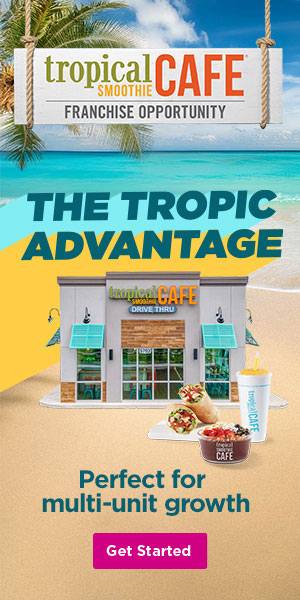Crossing the Pond: Insights for European Expansion

Entering the European market is an appealing but complex venture. With a diverse landscape characterized by varying consumer preferences, languages, legal frameworks, and business practices across its many countries, Europe presents both opportunities and challenges. For U.S. brands aiming to expand into Europe, understanding the nuances of potential models and market dynamics is critical. There is no one size fits all solution, and a strong bespoke strategy is important. Here are key insights to consider when exploring taking the leap.
1. Expansion models: understanding the options
Franchising remains the most popular expansion strategy for restaurant brands globally, and Europe is no exception. However, the choice of franchising model plays a pivotal role in the success of market entry.
For example, Starbucks heavily relies on area development and master franchising in Europe and has applied the models differently in different markets, allowing them to adapt to local culture while maintaining brand integrity.
Being that master franchising reduces the franchisor’s risk but also means less control over operations, we see this applied more to QSR and process-oriented concepts. Brands like Burger King, KFC, and Domino’s have successfully utilized this model in markets such as UK, France, Germany, and Spain, where local knowledge and expertise are essential.
Another model which blends corporate and franchised units is exercised by Starbucks, for instance, in the UK, ensuring strategic oversight while benefiting from local franchise partnerships.
Choosing the right model depends on several factors, including the brand’s operational needs, market characteristics, and the availability of qualified partners. For example, KFC uses a mix of area development, master franchising, and corporate franchise agreements in markets like The Netherlands to ensure rapid yet controlled expansion.
2. Market selection: navigating diverse opportunities
Europe is not a monolithic market. Each country offers distinct opportunities and challenges, from market size and consumer behavior to regulatory environments. Brands must carefully assess which markets align with their strategic goals, where barriers to entry exist for their specific concept and operating model and what the landscape of viable partners looks like.
Unlike the U.S., where brands often deal with one large market, Europe presents a collection of smaller, diverse markets. This diversity is reflected in varying consumer preferences, economic conditions, and cultural norms. A strategy that works in one European country might not be successful in another. For example, franchising models and consumer engagement strategies that are effective in France might not resonate in Germany or Spain.
3. Adapting to local consumer preferences
One of the most significant challenges for American brands in Europe is adapting to local tastes and preferences. Successful brands recognize the importance of localization—whether it’s modifying the menu, adjusting the service model, or embracing local customs.
For example, Starbucks’ success in Italy, a country with a strong coffee culture, required a deep understanding of Italian coffee traditions, which they learned in their first attempt to enter the market. Upon a second attempt, the brand opened its flagship roastery in Milan, blending the Starbucks experience with Italian design and coffee heritage. Similarly, most brands have tailored their offerings to suit local tastes in various European markets, ensuring relevance while maintaining brand identity.
4. Legal and regulatory considerations
Europe’s regulatory environment varies significantly by country, impacting everything from franchising laws to food safety regulations. Brands must navigate these complexities to ensure compliance and protect their brand reputation.
Franchising disclosure laws, in particular, differ widely across Europe. For instance, France and Italy have more robust requirements for franchise agreements and FDDs, while other countries may have more relaxed regulations or not require any FDD. It’s recommended that franchisors consider engaging specialized local legal advisors to navigate these intricacies and avoid potential pitfalls.
5. The role of strong partnerships
Building strong, reliable partnerships is crucial for success in Europe. Whether through area developers, master franchisees, or joint ventures, having the right local partner can make or break a brand’s European expansion. These partnerships help navigate local regulations, consumer preferences, and operational challenges while ensuring brand consistency.
McDonald’s has long been a leader in leveraging local partnerships to succeed in diverse European markets. By aligning with strong local franchisees, McDonald’s has been able to adapt its menu and service models to meet the tastes and expectations of consumers across Europe. For example, in France, McDonald’s introduced the “Le Big Mac” and other localized products while maintaining the core elements of its global brand.
For American restaurant brands eyeing the European market, success lies in a combination of strategic franchising, careful market selection, adaptation to local tastes, and strong partnerships, among other elements. Europe’s diversity is both a challenge and an opportunity—brands that take the time to understand and navigate this complexity can unlock significant growth potential. Whether through area development, master franchising, or a hybrid approach, the key is to tailor the strategy to fit both the brand’s strengths and the specific market dynamics of each European country.
Rebecca Viani is Partner with WhiteSpace Partners., a London-based firm, focused on the development and execution of market entry, franchise development, and acquisition strategies for restaurant brands expanding into Europe and the Middle East.
Share this Feature
Recommended Reading:
| ADVERTISE | SPONSORED CONTENT |
FRANCHISE TOPICS
- Multi-Unit Franchising
- Get Started in Franchising
- Franchise Growth
- Franchise Operations
- Open New Units
- Franchise Leadership
- Franchise Marketing
- Technology
- Franchise Law
- Franchise Awards
- Franchise Rankings
- Franchise Trends
- Franchise Development
- Featured Franchise Stories
| ADVERTISE | SPONSORED CONTENT |








 The franchise listed above are not related to or endorsed by Franchise Update or Franchise Update Media Group. We are not engaged in, supporting, or endorsing any specific franchise, business opportunity, company or individual. No statement in this site is to be construed as a recommendation. We encourage prospective franchise buyers to perform extensive due diligence when considering a franchise opportunity.
The franchise listed above are not related to or endorsed by Franchise Update or Franchise Update Media Group. We are not engaged in, supporting, or endorsing any specific franchise, business opportunity, company or individual. No statement in this site is to be construed as a recommendation. We encourage prospective franchise buyers to perform extensive due diligence when considering a franchise opportunity.